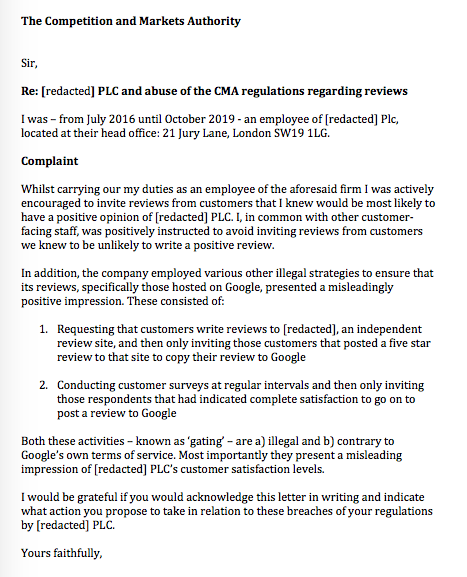So what has this got to do with reviews? Let's look at how the business looks on Google today:
Before (filter or no filter):
After (filtered):
Gone!
Urgent action the business should take now
- Flag the two negative reviews.
- Appeal both those reviews to Google - on the grounds that the reviewers have 'no first-hand knowledge or experience of the business under review'. It's not guaranteed to work, but, framed correctly an appeal does stand a chance.
- Introduce a formal review management programme, designed to allow all their customers to write a review (in order to be in compliance with UK CMA regulations
- Then aim to get enough reviews to Google to lift their score back above the Google filter. To achieve 4.5 - the filter's cut-off - they now need another nine 5* reviews and no more 1*s. To be safe then they need the programme to keep the reviews rolling in.
What the business - and any other business finding itself in its 'pre-press outcry' situation - looking good but with few reviews - should have done:
- Introduce a formal review management programme, designed to allow all their customers to write a review (in order to be in compliance with UK CMA regulations).
- Then aim to get enough reviews to Google to lift their score way above the Google filter. We always aim for 50 per location for our clients.
Its score would drop - perhaps - to 4.9. That would still leave it a safety margin of 0.4 clear of the Google filter. And it's highly unlikely its great rich snippets - the three shorthand guides Google provides under 'Reviews' at the bottom of the knowledge panel (above) would alter.
It would still appear in mobile/map search, irrespective of the Google filter (see that at top left in red under the Google logo?):
An added bonus? When the press looked the business up on Google at least they would see they are great servants to the home-owners of the community; it might not snuff out an article like this, but it would certainly give comfort to anyone searching for an agent in the weeks to come.
The lesson
Don't wait until your business it the victim of negative reviews before you engage. Review management should be part and parcel of every business's marketing strategy these days. it's not expensive - indeed, it should make you money (our clients generally see an uplift in call and clicks through to their websites in the region of 20 - 30 per cent) - and it will provide an excellent first line of defence in cases like these.


















































